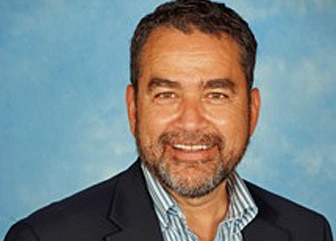COMMENTARY: I was heartbroken when I heard Senator Elizabeth Warren decided not to run for president. The possibility that two accomplished women – one an upstart professor and Wall Street reformer, the other part of the most powerful political family since the Kennedys – would battle for the Democratic nomination would have been historic.

Courtesy photo
Eric Griego
Hillary continues to make not just her experience, but her gender – and the prospect of electing the first female president of the United States – a central part of her campaign strategy. Of course she is more than qualified to be president. Successful Yale-educated attorney, first lady (and Bill Clinton’s closest advisor) for eight years, U.S. senator from one the most powerful American states for eight years, secretary of state under Obama for four years. No one is questioning her résumé.
Her record, her judgment and her consistency are an entirely different matter.
Clinton’s worst decision by far was her vote to invade Iraq. As almost everyone now acknowledges, the Iraqi invasion was the worst foreign policy blunder in recent American history. ISIS, Al Qaeda, and the Syrian crisis all have roots in that terrible decision pushed by George W. Bush and supported by too many misguided members of Congress.
It’s not like it was a tough vote for Democrats: 21 senators and 126 members of the U.S. House voted against the resolution. Progressive female senators such as Barbara Boxer (Calif.), Patty Murray (Wash.), Barbara Mikulski (Maryland), and Debbie Stabenow (Mich.) realized the Iraq invasion was a bad idea and stood their ground.
Clinton, in contrast, joined with 48 of her Republican colleagues to help pass the resolution.
As first lady, and Bill Clinton’s consigliere, Hillary helped champion George H. W. Bush’s ill-conceived NAFTA, after Clinton promised Democrats during his campaign to add protections for workers and the environment. The side agreements promised by Clinton to assuage labor and environmental concerns turned out to be toothless and inadequate.
She championed Bill Clinton’s 1994 crime bill, which has contributed to the United States having the largest prison population on earth at 2.4 million people. Thanks in part to the Clinton crime bill, black men are six times more likely than white men to be in prison and Hispanic men are 2.4 times more likely, according to the Sentencing Project.
Hillary also helped Bill Clinton pass the 1996 welfare reform bill that pushed more than a million children into poverty and denied benefits to legal immigrants who paid Social Security and income taxes. Hillary uses her short post-college stint at the Children’s Defense Fund in speeches to bolster her liberal, social policy bona fides. However, CDF Founder and President Marian Wright Edelman has clearly distanced herself from Clinton and her role in welfare reform and mass incarceration.
On issues ranging from same-sex marriage, to the Trans Pacific Partnership, to the Keystone Pipeline, Hillary has either changed her mind, her position or her values over her political career. This has led many to wonder what, if anything, she really stands for.
The good news is that Warren is not the only progressive woman who would make a better candidate and president than Hillary. Any of the progressive senators mentioned above could have been (and may still be) solid presidential candidates. Add to them several progressive female former governors (Jennifer Granholm, Jeanne Shaheen, Katherine Sebellius) and we have reason to be hopeful that we will have a progressive female president in the near future.
The problem with Clinton isn’t that she is a woman. Her problem is that her political life has been wrought with inconsistency, political opportunism and ties to the very interests (Wall Street, the health insurance industry, private prisons) that have undermined a progressive agenda.
Do I wish Bernie were a woman or a person of color or both? Yes. Is it worth casting my vote for someone because of their gender or race despite being out of step with my own hopes and progressive values? No way. The stakes are too high for our democracy and our nation’s future.
For the past two decades Eric has worked as a researcher, analyst and policymaker on applied public policy issues ranging from economic development to early childhood education at the local, state, national and international levels. He is a former Albuquerque city councilman, state senator, and is currently a Doctoral Fellow at the Robert Wood Johnson Center for Health Policy at the University of New Mexico, where his research interests include the connections between economic development, healthy communities and social investment.
